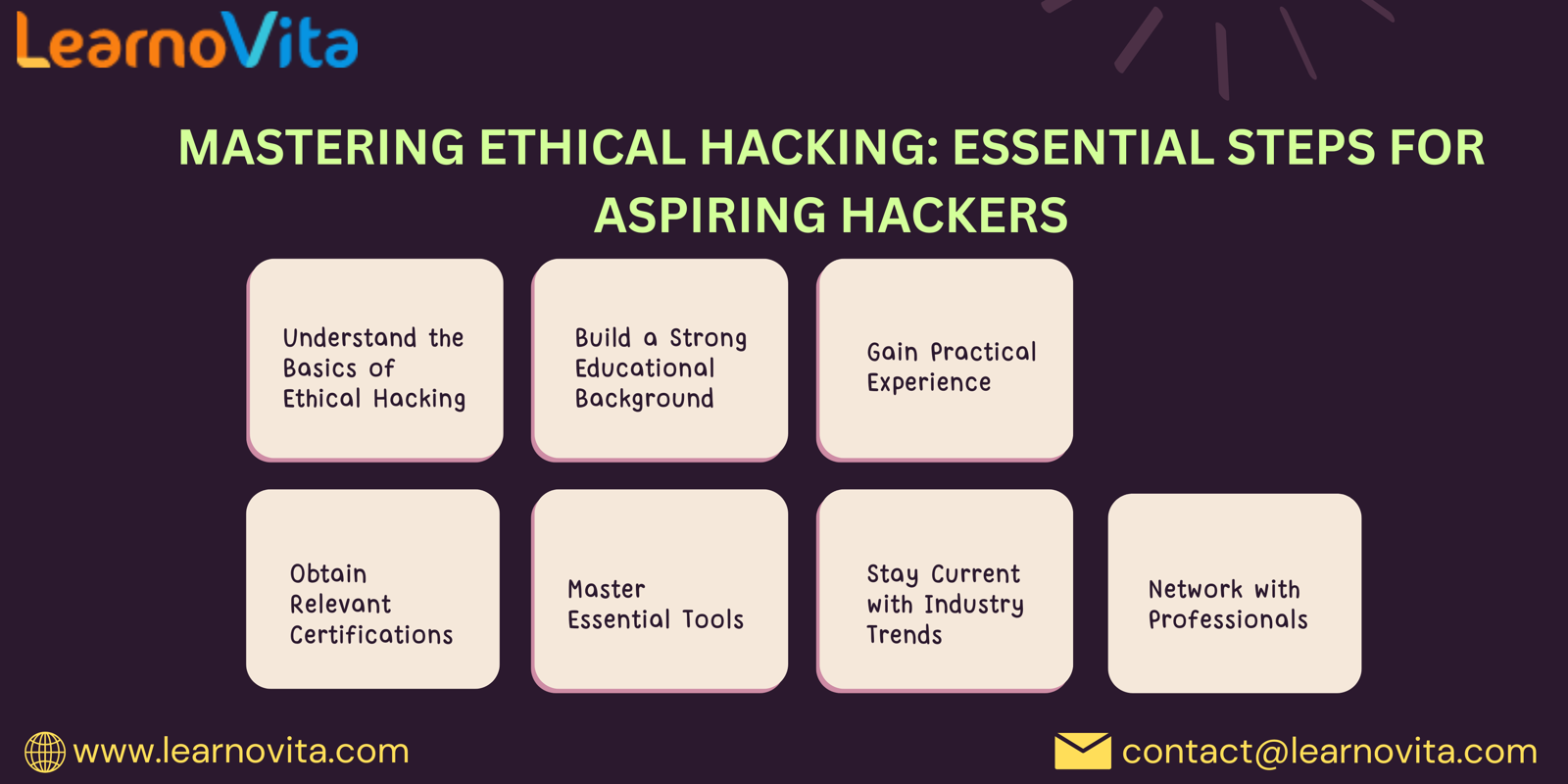Steps to Success: How to Enter the World of Ethical Hacking

1. Understand the Role of an Ethical Hacker
Before diving in, it's essential to grasp what ethical hacking entails. Ethical hackers, or white-hat hackers, work to identify vulnerabilities in systems and networks with permission from the organization. Their goal is to strengthen security measures and protect sensitive information from cybercriminals.
2. Build a Solid Educational Foundation
While a degree in computer science or cybersecurity can be helpful, it’s not a strict requirement. Here are some key areas to focus on:
- Computer Science Basics: Understand fundamental computing concepts.
- Networking: Learn about network protocols, architecture, and security measures.
- Operating Systems: Gain familiarity with various operating systems, particularly Linux and Windows.
3. Gain Hands-On Experience
Practical experience is crucial for aspiring ethical hackers. Here are some effective ways to build your skills:
- Online Labs: Platforms like Hack The Box and TryHackMe provide virtual environments for practicing ethical hacking techniques.
- Home Lab Setup: Create your own lab using virtual machines to experiment with different tools and scenarios.
- Internships: Seek internships or entry-level positions in IT or cybersecurity to gain real-world experience.
4. Obtain Relevant Certifications
Certifications can enhance your credibility and improve job prospects. Consider pursuing the following:
- Certified Ethical Hacker (CEH): A comprehensive certification covering various hacking techniques and tools.
- Offensive Security Certified Professional (OSCP): A hands-on certification focusing on penetration testing skills.
- CompTIA Security+: A foundational certification that addresses essential cybersecurity concepts.

5. Learn Key Tools and Techniques
Familiarizing yourself with essential tools is critical for success in ethical hacking. Some important tools include:
- Nmap: A network scanning tool for discovering hosts and services.
- Wireshark: A network protocol analyzer used to monitor and analyze traffic.
- Metasploit: A framework for developing and executing exploit code against vulnerable systems.
6. Stay Updated on Industry Trends
Cybersecurity is a rapidly changing field. To stay relevant, keep up with the latest trends and threats by:
- Following Industry News: Subscribe to cybersecurity blogs, podcasts, and newsletters.
- Engaging in Online Communities: Join forums and social media groups focused on ethical hacking.
- Attending Conferences: Participate in industry events to learn from experts and network with peers.

Comments
Post a Comment